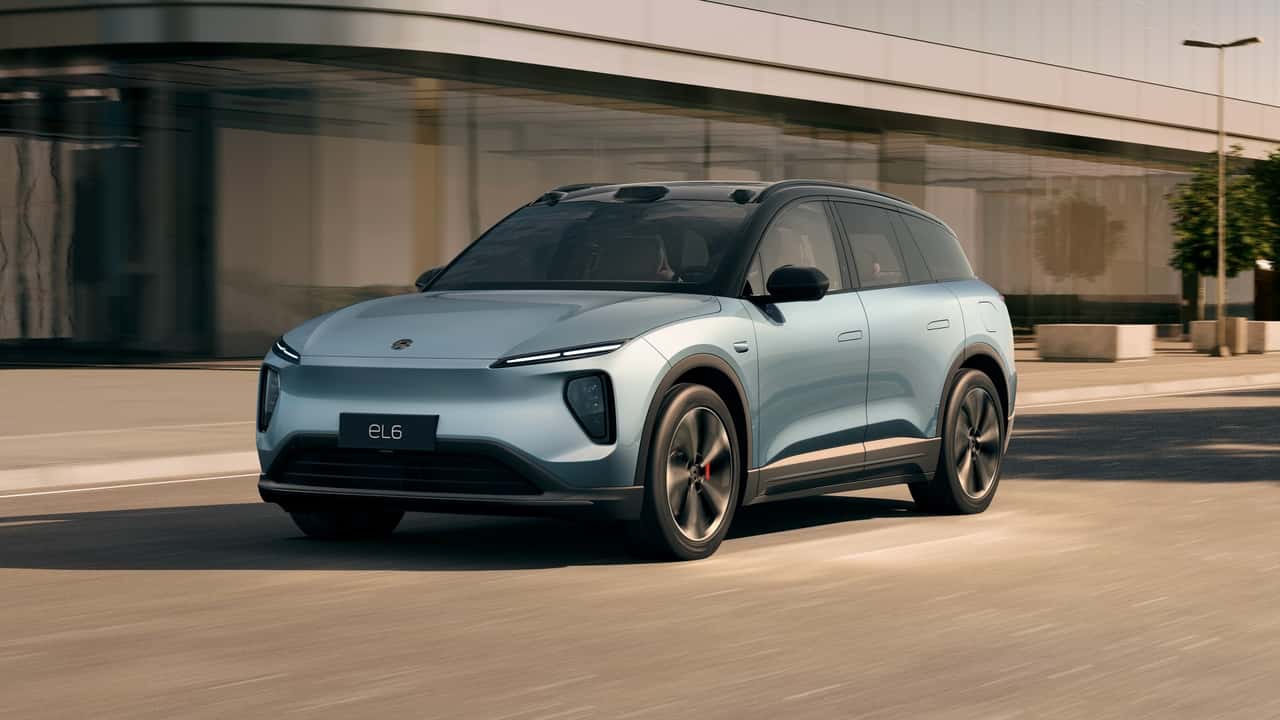Chinese automaker Nio is eyeing the U.S. market and hopes to start selling electric vehicles (EVs) in the country by 2025. Nio already has a North American headquarters and Innovation Center in San Jose, California. Ganesh Iyer, the CEO for Nio in the U.S., confirmed the company’s plans at the NextChina Conference in New York. However, he acknowledged that sticking to the 2025 target may be challenging.
Nio offers a range of EVs, including sedans, wagons, and SUVs. One of its unique features is battery-swapping, which has gained popularity in China and Europe. Unlike other Chinese automakers, Nio does not plan to build a production plant in the U.S. Instead, it intends to import its premium EVs from China. Iyer cited the high cost of building factories in the U.S. and the exclusivity of Chinese suppliers as the main reasons behind this decision. However, importing vehicles from China means Nio’s EVs won’t qualify for the federal tax credit offered to domestically produced EVs.
Another hurdle for Nio and other Chinese automakers entering the U.S. market is the 27.5 percent tariff imposed on Chinese-made cars. Nio’s CEO, William Li, has criticized this “U.S. protectionism” and demanded equal access to the American market enjoyed by Tesla in China. The tariff is unlikely to be lifted in the near future.
While Nio aims to launch in the U.S. by 2025, Iyer admitted that things may change. The U.S. market remains challenging for Chinese carmakers, as demonstrated by the lack of follow-through from other Chinese brands like BYD and Geely. However, with the rise of electrification, Chinese automakers have become more competitive, and it’s only a matter of time before a Chinese brand successfully enters the U.S. market, likely with EVs. The question is whether Nio will start with imports or establish a production facility in a neighboring country like Mexico.
Nio, the Chinese electric vehicle (EV) manufacturer, has reaffirmed its commitment to entering the U.S. market by 2025, despite the challenges posed by the ongoing global pandemic. The company plans to import its EVs from China rather than establishing local manufacturing facilities in the U.S. This decision presents both advantages and potential challenges as Nio seeks to establish a strong presence in the competitive American automobile market.
Nio’s determination to maintain its 2025 U.S. launch goal underscores the company’s confidence in the growing demand for electric vehicles globally, and particularly in the U.S. market. The company’s decision to import electric cars from China instead of manufacturing them domestically allows Nio to quickly and efficiently bring its vehicles to American consumers. By leveraging its existing production facilities, Nio can ensure a steady supply chain, reducing the risk of manufacturing delays and potential quality issues that often accompany the establishment of new manufacturing facilities in foreign markets.
Furthermore, importing EVs from China enables Nio to offer competitive pricing to American consumers. Chinese EV manufacturers have gained a reputation for producing affordable electric vehicles that offer similar performance and features as their Western counterparts, but at a more attractive price point. Nio’s ability to offer affordable yet high-quality EVs may entice price-sensitive consumers and help the company gain a foothold in the U.S. market.
However, Nio’s decision to import EVs from China may face some challenges, primarily in the form of potential trade tensions and regulatory risks. The U.S.-China trade relationship has been fraught with uncertainties and disputes, leading to the imposition of tariffs and regulatory restrictions. Nio must navigate these challenges carefully to avoid any potential barriers or delays in importing their vehicles.
Additionally, Nio will also need to overcome the skepticism that some American consumers may have towards Chinese-made products. Despite the growing reputation of Chinese manufacturers for their production quality, there remains a perception among some consumers that products from China are of inferior quality. Nio must proactively address this perception through robust marketing strategies and emphasize the high-quality standards of their electric vehicles.
To further bolster its chances of success in the U.S. market, Nio should consider localizing certain aspects of its operations. Developing a strong local supply chain, such as establishing partnerships with American suppliers, would help mitigate logistical challenges and reduce costs associated with importing vehicles from China. Furthermore, the establishment of local service centers and customer support networks would enhance Nio’s credibility and provide the necessary infrastructure to support a positive ownership experience for American customers.
In conclusion, Nio’s determination to meet its 2025 U.S. launch goal by importing EVs from China reflects its confidence in the growing demand for electric vehicles in the American market. While this decision offers advantages such as lower costs and a steady supply chain, potential challenges such as trade tensions and consumer skepticism need to be effectively managed. With a careful approach and strategic investments in local operations, Nio can position itself as a strong contender in the U.S. electric vehicle market and contribute to the global transition towards sustainable transportation.

